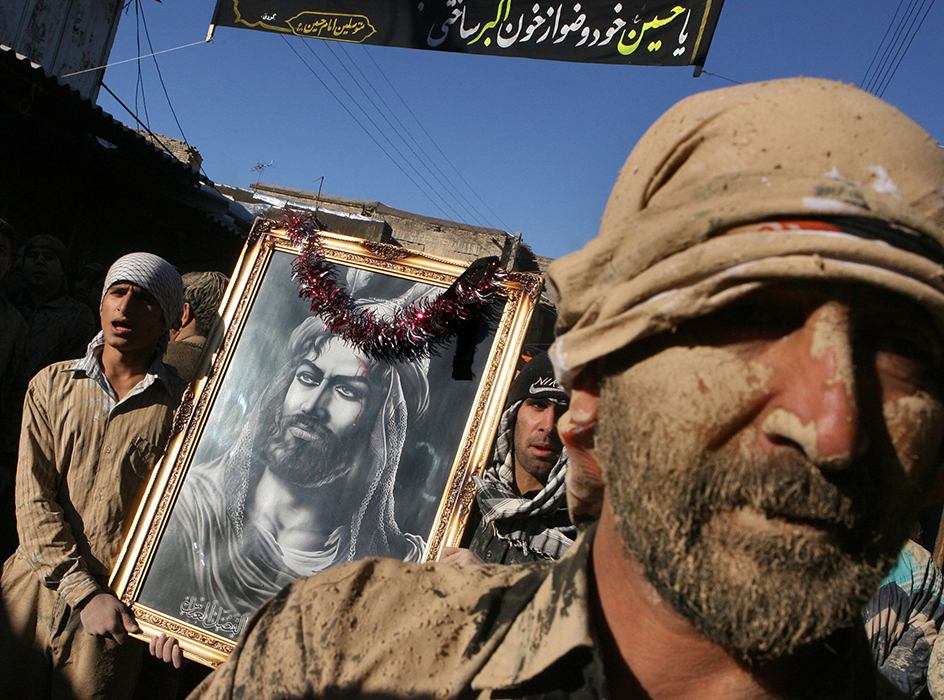Ashūra, also written as Ashura, is an Islamic religious festival that falls on the 10th day of Muharram, the first month on the Islamic lunar calendar. Ashūra is the Arabic word for tenth. Ashūra has greater significance for Shī`ite Muslims than for Sunni Muslims. Sunnis observe Ashūra as a traditional day of fasting. Shī`ite communities observe Ashūra as a day of mourning for the death of Husayn, also known as Husayn ibn Alī, a grandson of the Prophet Muhammad.

In 680, Yazid I became caliph (leader) of the Umayyad Empire, a vast empire that stretched from Spain across north Africa and the Middle East to central Asia. Husayn felt that Yazid had established a corrupt, unjust society and had violated moral and religious standards. He refused to accept Yazid’s authority. A battle took place between Husayn’s and Yazid’s forces at Karbala, in what is now Iraq. Yazid’s forces, more numerous and better equipped than Husayn’s, massacred Husayn and his followers, trampled their bodies, pillaged their camp, and captured the women and children.
Husayn’s death is an important milestone in Shī`ite history. It strengthened Shī`ite ideas about injustices endured by Muhammad’s family and fed a passion for martyrdom (sacrificing oneself for a cause). It also inspired Shī`ite Muslims to defy oppressive rulers.
Shī`ites observe Ashūra with various kinds of devotions, depending on the local culture. In South Asia, for example, Shī`ite religious leaders use representations or symbols of the city of Karbala to encourage weeping for Husayn and his followers as well as devotion to the Shī`ite imams (spiritual leaders). Some Shī`ites flagellate themselves (strike their bodies with whips and chains) and cut themselves with knives. A small number of Shī`ites cut their heads, a practice known as tatbir. Shī`ites also attend assemblies at which worshipers recite the stories of the martyrs of Karbala. The miracles, valor, and virtues of the Shī`ite imams also are recounted at these gatherings.
See also Muslims (The Umayyads) .
